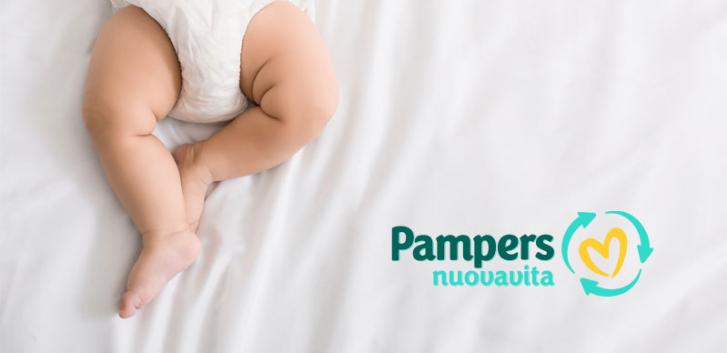In this journey we proceed one step at a time, REDUCING WASTE produced by our industrial processes and promoting a SUSTAINABLE CULTURE together with our suppliers, consumers and institutional stakeholders.
What we can do together

Citizens, businesses, institutions, everyone must take action: because we all deserve a second chance. Even used absorbent hygiene products.
Objectives 2025

On track:
-17% use of virgin plastic
ACE: virgin plastic reduction
We aim to reduce the use of virgin plastic by 50% by 2025 and offer conceptually new products that are environmentally friendly. We want to work with people to spread awareness on these issues and focus on recycling.
thanks to product design,
bottle degreasing and
recycled plastic

Reduced impact
Environmental
Raw materials study started
Campochiaro: - 20% average waste (finished product, plastic, liquids, paper)
Pescara: 50% waste diapers for recycling
Creating value
Quality for consumers, innovation, safety, sustainability for the planet. All these concepts and blueprints intersect and become an EVERYDAY LANGUAGE.
Speaking this language are women and men who are responsible for producing sanitary products in Pescara, and fabric and household detergents in Campochiaro for the general public. Emissions, efficient use of resources and waste reduction are important to Fater to effectuate our LCA (life cycle assessment) approach.
THE PESCARA FACTORY
A circular challenge
We want to make our purpose, namely ZERO WASTE, a concrete reality
Also in terms of production.
Even now, post-industrial waste from the Pescara factory goes to recovery and is handled by authorised and certified companies. We don't send anything directly to landfill. The issue of post-industrial waste has also been dealt with in a circular way in the Campochiaro factory that manufactures ACE products..
THE CAMPOCHIARO FACTORY
On track: projection a.f. 2018 - 2019 -4% (56% of target acquired in Jul-Dec 2019)
Logistical efficiency for the planet
We’ve been tackling the issue of reducing the number of vehicles on the road since 2016. Projects that make better use of the space above trucks, and the use of alternative transportation methods such as ships, and a new design of logistics for the ACE detergents, have already saved the environment around f 4,500 tons of CO2 equivalent between 2016 and 2019.
between 2016 and 2019
This year we have given ourselves a bigger goal to achieve: we want to cut logistics emissions by 20% over the period 2020-2025 (-11,000 tonnes of CO2 equivalent). What’s the future of transport in the world? Electric vehicles or means of transport that have less impact on air quality are the future. We asked ourselves "how can we be part of the solution to the problem and reduce our impact when transporting goods?"
in 2025